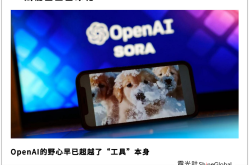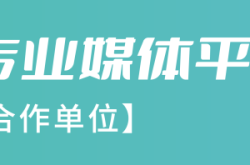Five consecutive limits! Guangzhi Technology discloses a multi-billion acquisition. How many more limits are coming in the future?
![]() 10/18 2024
10/18 2024
![]() 695
695
On October 18, Guangzhi Technology opened with a limit up, marking the fifth consecutive trading day of limit up. Guangzhi Technology stated in its announcement on stock price fluctuations that there have been no significant changes in the company's operating conditions or internal and external business environment recently, and that there are no material matters that should be disclosed but have not been disclosed by the company, its controlling shareholder, or its actual controller.
Furthermore, Guangzhi Technology emphasized in its announcement that the company plans to acquire 100% of the equity of XianDao Electronics Technology Co., Ltd. from 55 shareholders, including Guangdong XianDao Rare Material Co., Ltd. ("XianDao Rare Material"), through a combination of share issuance and cash payment.
Similarly, Shuangcheng Pharmaceutical had issued a similar announcement not long ago regarding an acquisition of a semiconductor and semiconductor materials company, which also resulted in a surge in the company's share price following the disclosure of the acquisition. Shuangcheng Pharmaceutical has recorded 19 consecutive limit-up days in 21 trading days, with a cumulative increase of 21.04%. So, how many more limit-up days can Guangzhi Technology expect in the future?
Loss of nearly 400 million yuan in two and a half years
Like Shuangcheng Pharmaceutical, where both Shuangcheng Pharmaceutical and Aola shares are controlled by Wang Chengdong, Guangzhi Technology and XianDao Electronics Technology are also controlled by the same person, Zhu Shihui.
Zhu Shihui, a native of Bengbu, Anhui Province, graduated from Guangdong University of Foreign Studies and began his career at Guangdong Foreign Economic Development Corporation. During his work, he discovered the immense potential of the rare metal industry and decided to pursue it. In 2003, Zhu founded Guangdong XianDao Rare Material Co., Ltd. in Qingyuan, Guangdong, starting with a single factory building, four selenium oxide furnaces, and over 20 employees. The company has since grown and flourished.
As early as around 2019, XianDao Rare Material initiated its listing plans. However, due to various reasons, the company's listing application was rejected by the China Securities Regulatory Commission (CSRC), temporarily derailing its listing aspirations. In search of new listing opportunities, Zhu Shihui began exploring mergers and acquisitions. In 2019, he gained control of Zhongfei Co., Ltd., a small and medium-sized board listed company, through equity transfers, voting rights entrustments, and private placements, and renamed it Guangzhi Technology.
This marks the precursor to Guangzhi Technology as we know it today.
However, Guangzhi Technology's performance has been lackluster since its backdoor listing. Financial reports show that from 2019 to 2023, the company's revenue was 129 million yuan, 415 million yuan, 724 million yuan, 936 million yuan, and 1.011 billion yuan, respectively. Net profit was a loss of 112 million yuan, 24 million yuan, 4.2 million yuan, a loss of 114 million yuan, and a loss of 241 million yuan, respectively.
In the first half of 2024, Guangzhi Technology's revenue was 572 million yuan, up 19.42% year-on-year, while net profit was a loss of 35.4112 million yuan, down 66% year-on-year. Based on these figures, Guangzhi Technology has lost nearly 400 million yuan in the past two and a half years.
In terms of cash flow, Guangzhi Technology's net operating cash flow was -158 million yuan in the first half of 2024, a year-on-year decrease of 460.12%. During the same period, the company held only 59.1165 million yuan in monetary funds, and its asset-liability ratio reached 76.04%.
Against this backdrop, Zhu Shihui announced Guangzhi Technology's acquisition of XianDao Electronics Technology. If successful, this acquisition will significantly enhance Guangzhi Technology's overall profitability, improve its financial condition, and strengthen its capital base. It is rumored that Zhu Shihui has been planning to inject XianDao Electronics Technology into Guangzhi Technology since the latter's backdoor listing.
Acquisition as a "Shell" Operation
Public records show that XianDao Electronics Technology, established in 2017, produces PVD sputtering targets and evaporation materials used in three major downstream applications: display, photovoltaic, and semiconductor. Its customers include BOE, TCL Huaxing Optoelectronics, Samsung, LG, and others. In 2022, XianDao Electronics Technology completed its Series A and Series B funding rounds, raising 1.4 billion yuan and 4.5 billion yuan, respectively.
According to a certificate issued by the Liquid Crystal Branch of the China Optoelectronics Industry Association, XianDao Electronics Technology's global market share of ITO targets rose rapidly from 2019 to 2022, eventually becoming the world's largest. From 2022 to the present, XianDao Electronics Technology has maintained a global market share of over 30% for ITO targets, ranking first globally.
Unlike Guangzhi Technology, XianDao Electronics Technology has performed impressively since its inception. From 2022 to the first half of 2024, the company's revenue was 2.187 billion yuan, 2.883 billion yuan, and 1.586 billion yuan, respectively, while its net profit was 466 million yuan, 411 million yuan, and 261 million yuan, respectively, achieving consistent profitability.
It is reported that earlier this year, XianDao Electronics Technology signed an IPO coach agreement with Guosen Securities and registered for coach with the Jiangsu Securities Regulatory Bureau. However, progress on its IPO has been slow since then.
Previously, the CSRC issued the "Opinions on Deepening the Reform of the Mergers and Acquisitions Market for Listed Companies," emphasizing "support for listed companies to inject high-quality assets and enhance investment value" and "increasing tolerance for horizontal competition and related-party transactions." The opinion also explicitly supports mergers and acquisitions among listed companies under the same control. By merging XianDao Electronics Technology into Guangzhi Technology, Zhu Shihui can avoid the IPO process and utilize the existing listed platform to optimize resource allocation and further strengthen the company.
This transaction has attracted significant market attention because XianDao Electronics Technology, as the only domestic supplier in the magnetic storage target material field, is valued at up to 20.9 billion yuan. As of before the National Day holiday, Guangzhi Technology's market value was only 3.136 billion yuan. Since the acquisition news spread, Guangzhi Technology has enjoyed a valuation premium due to expectations of the XianDao Electronics Technology acquisition, and its current market value has risen to 7.805 billion yuan.
It appears that Zhu Shihui, like Wang Chengdong, the controller of Shuangcheng Pharmaceutical, may share a similar strategy. A poorly performing listed company acquires a profitable unlisted company, gradually divesting from its original business and transforming into a more profitable sector.
Speculative Trading
As of today, Shuangcheng Pharmaceutical has recorded 19 limit-up days in 21 trading days, while Guangzhi Technology has achieved five consecutive limit-up days, with a cumulative increase of 14.24% during this period. On the one hand, mergers and acquisitions are currently encouraged by regulators in response to the CSRC's "Six Guidelines on Mergers and Acquisitions." On the other hand, if the acquisition is successfully completed, the company's future primary business will be closely related to the semiconductor and integrated circuit industries, which are currently strongly supported by the government.
Stimulated by the acquisition news, Guangzhi Technology closed at 56.69 yuan on October 18, with a 20% limit-up and a turnover rate of 1.68%.
There are signs of significant involvement by major funds, with a net inflow of approximately 21.1114 million yuan for major funds and approximately 40.7148 million yuan for ultra-large and large orders, indicating an upward trend in the short term.
Data from the Dragon and Tiger Rankings show that the top five buying positions combined for a total purchase of 95.9098 million yuan, while the top five selling positions combined for a total sale of 42.9242 million yuan, resulting in a net buy of 52.9856 million yuan.
Among them, the top buyer was Century Securities Co., Ltd., Guangdong Branch, with a purchase of 38.322 million yuan; the second buyer was Dongwu Securities Co., Ltd., Shenzhen Branch, with a purchase of 36.7574 million yuan; and the third buyer was Aijian Securities Co., Ltd., Shandong Second Branch, with a purchase of 11.7874 million yuan.







